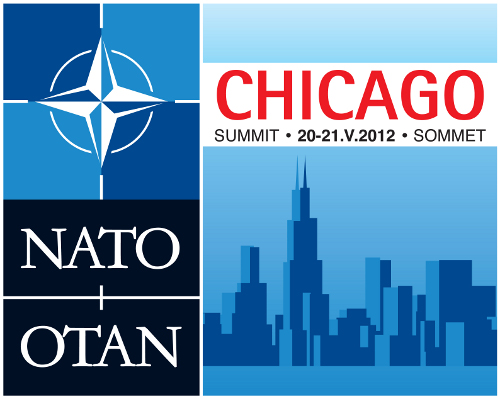Avoiding NATO Summit Disaster
My first piece for the Christian Science Monitor, co-authored with my Atlantic Council collegue Barry Pavel, has been posted.
My first piece for the Christian Science Monitor, co-authored with my Atlantic Council collegue Barry Pavel, has been posted: “With Iran, Syria looming, can Obama save NATO from disaster at Chicago summit?”
An excerpt:
Coming off the heels of a very successful NATO summit in Lisbon, Portugal, in November 2010, it looked like President Obama would make the coming NATO summit in Chicago May 20 and 21 – an election-year meeting of America’s strongest allies on American soil – a centerpiece of his campaign, highlighting great successes in his foreign policy.
The Lisbon Summit had produced an ambitious strategic concept with a bold vision for NATO’s future, including a renewed commitment to the fight in Afghanistan, a robust agreement on missile defense, and deepened cooperation on emerging challenges such as cyber security. Eighteen months later, not nearly enough progress has been made – and certainly not enough for Mr. Obama to tout.
To avoid the Chicago summit ending up as a total bust, Obama must push NATO leaders to address those three major issues on the agenda.
[…]
At the Chicago summit, the Obama administration can exert leadership to make inroads on areas where consensus is emerging.
Moving ahead on “smart defense” requires an agreement on which capabilities must be maintained by all allies and which can be shared responsibilities, with some providing capabilities that all can rely upon if needed.
On Afghanistan, maintaining Lisbon’s 2014 timeline may no longer be possible, but Chicago should at the very least result in an agreement to follow a NATO timeline, not one set by the domestic politics of individual allies.
On cyber security, allies need to move toward common standards for national cyber assets to ensure continued interoperability. On partnerships, NATO should engage in structured outreach at multiple levels to its Gulf partners who already have joined NATO military operations.
Finally, NATO should formalize the reality made clear by the Libya operation and set forth procedures for “coalitions of the willing” among NATO members to employ alliance command and control assets in the absence of unanimous participation.
More at the link.






The Joyner Publication Blitzkrieg marches on!
Incidentally, my first published anything was with the CSM back in 1975 IIRC, a piece on the Front for the Liberation of the Azores that I had to smuggle back to the US. Front page. It earned me threats from Air Force intelligence at Lajes. Good times, good times.
With my usual cleverness I immediately dropped reporting and spent the next 14 years not even trying to write or sell.
@michael reynolds: This one was a giant pain in the ass. I mostly publish for the Web, although I’ve written for a handful of print publications and small- and mid-market papers. Usually, the turnaround is very quick but this one was written and accepted more than two weeks ago.
I have a few questions regarding NATO. Is the US still considered to be the sugar daddy for the organization? Is the US still maintaining around 90,000 troops in the theater? Can the US continue to be the sugar daddy in light of our sick economy and massive debt?
At one time we were paying for 20% of the basic expenses of NATO, plus additions for various development programs, such as NADGE, and other payments that were not well publicized. I assume this pattern persists today, but in view of our problems, why can’t we execute a gradual withdrawal from our rather sucker role of sugar daddy in these later years? It is hard to remember how many times I heard “let the Americans pay for it!” in the halls of NATO HQ by rather senior people in the ten years I was involved there.
The payments allowed the Europeans to maintain very low military budgets since the inception of NATO, on the order of 3 to 5 % at most, while we were spending upwards of 10% or more every year. Perhaps this paid dividends from the start until about 1965-1970, but as the European economy took off, so should their share of the overall defense of their lands.